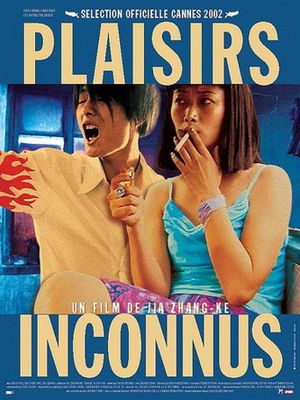Jia Zhangke's 'Unknown Pleasures,' a cinematic feat completed within an astonishing three-week timeframe, stands as a testament to artistic brilliance. Each frame is intricately crafted, laden with profound symbolism that adeptly captures the void and despair prevalent in today's youth and pop culture. While exploring thematic parallels with other works, this film transcends them, rendering itself as an emblematic masterpiece of the 21st century.
Unlike conventional narratives, 'Unknown Pleasures' doesn’t merely follow the characters; it engulfs us in their world, organically birthing ideas from their experiences. The deliberate pace of shots, extended beyond the norm, paradoxically creates an immersive cinematic journey where time appears to fleetingly pass by. The haunting, dilapidated settings of China serve as a poignant backdrop, mirroring the societal decay.
Describing this film proves challenging owing to its stark realism, freezing time and confronting romantic idealism with unfiltered reality. It masterfully encapsulates the essence of youth grappling with poverty. The swift production turnaround contrasts with the meticulous precision of its execution: characters seamlessly inhabit the frames, their movements orchestrated with meticulous care.The film poignantly portrays an existence reliant on fragile distractions, offering a meager sustenance for both body and soul. It vividly illuminates the absence of a tangible future, turning each day into a battle against the weight of despair. Yet, amid this bleakness, the narrative reveals glimmers of hope, fleeting yet essential, akin to shards of a mirror offering moments of solace.
'Unknown Pleasures' stands as a potent reflection of crumbling infrastructures and fractured spirits, painting an evocative portrait of alienation and ennui amidst political and economic globalization. It mirrors the decay of buildings as a metaphor for fading dreams, creating an indelible portrayal of the human condition amidst contemporary societal upheavals.

